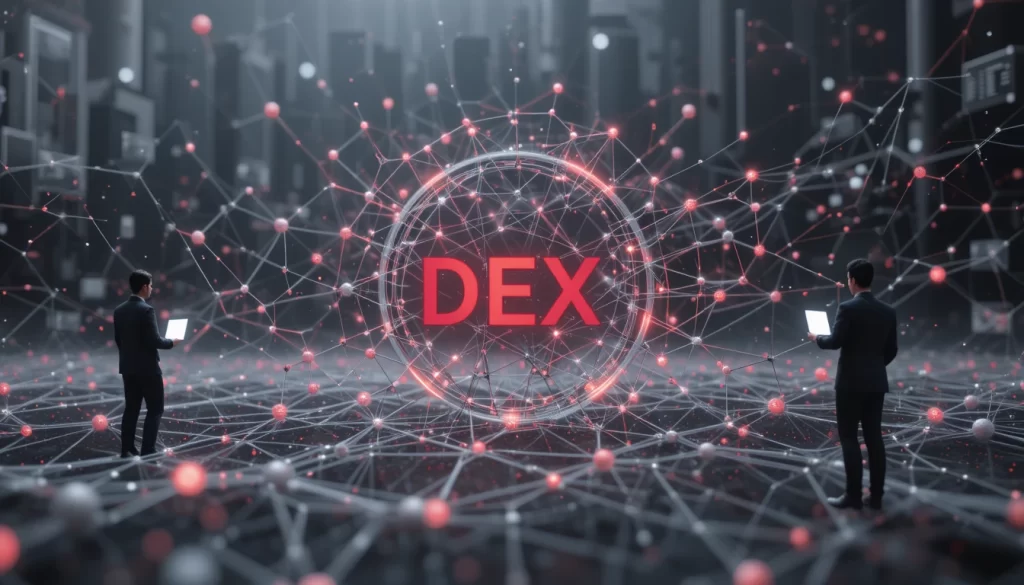A Decentralized Exchange (DEX) is a cryptocurrency trading platform that enables users to trade digital assets directly with one another without the need for an intermediary. Unlike centralized exchanges (CEXs), which require users to deposit funds into accounts managed by the exchange, DEXs allow users to retain full control of their assets by facilitating trades directly from their personal wallets. This peer-to-peer trading model is powered by smart contracts—self-executing agreements with terms encoded directly into software—that automatically execute trades when predefined conditions are met.
Key Features of DEXs:
- Self-Custody: Users maintain control of their private keys and funds at all times, reducing the risk of loss due to exchange hacks or mismanagement.
- Permissionless Access: Anyone with a compatible cryptocurrency wallet and internet connection can access and use a DEX without the need for registration or identity verification.
- Transparency: All transactions and smart contract codes are typically open-source and recorded on the blockchain, ensuring a high level of transparency.
- Reduced Counterparty Risk: By eliminating intermediaries, DEXs minimize the risk associated with trusting a centralized entity to manage funds.
Types of DEXs:
DEXs can be categorized based on their operational mechanisms:
- Order Book DEXs: These platforms maintain an on-chain ledger of all open buy and sell orders. While offering transparency, they can suffer from liquidity issues and slower transaction times due to the need for on-chain order matching.
- Automated Market Makers (AMMs): Instead of using order books, AMMs utilize liquidity pools and algorithms to determine asset prices. Users trade against these pools, which are funded by other users who earn fees for providing liquidity. This model has gained popularity due to its efficiency and ability to provide continuous liquidity.
Advantages of Using DEXs:
- Security: Since users retain control of their funds, the risk of large-scale hacks affecting user assets is reduced.
- Privacy: DEXs typically do not require personal information, allowing users to trade anonymously.
- Censorship Resistance: The decentralized nature of DEXs makes them less susceptible to censorship or regulatory shutdowns.
Challenges and Considerations:
- Liquidity: DEXs may have lower liquidity compared to CEXs, potentially leading to higher slippage and less favorable prices for large trades.
- User Experience: Interacting with DEXs can be complex for beginners, requiring a good understanding of wallet management and blockchain transactions.
- Smart Contract Risks: Vulnerabilities in smart contract code can be exploited, leading to potential losses. It’s crucial to use DEXs that have been audited and are well-regarded in the community.
- Transaction Costs: On certain blockchains, network fees can be high, making frequent trading on DEXs costly.
Conclusion:
Decentralized exchanges represent a significant innovation in the cryptocurrency space, aligning with the core principles of decentralization and user empowerment. While they offer enhanced security, privacy, and control over assets, they also come with challenges that users must navigate. As the technology and user interfaces of DEXs continue to evolve, they are poised to play an increasingly vital role in the future of digital asset trading.
